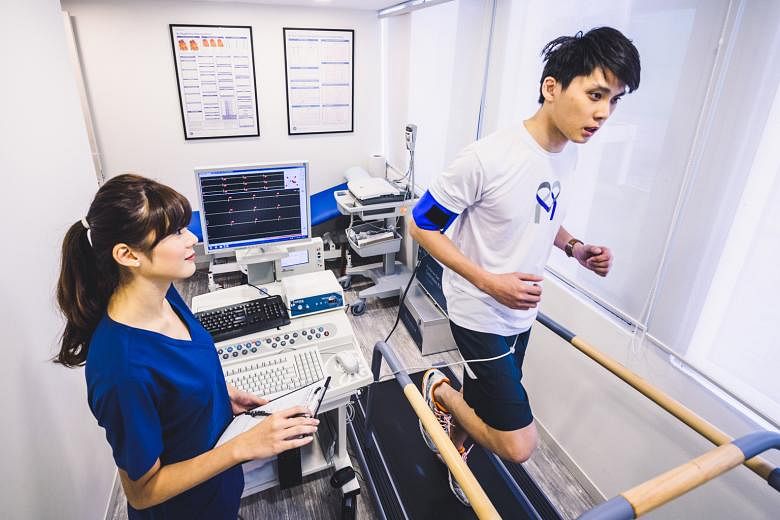Q. I am a 52-year-old woman and have been experiencing heart palpitations and sharp chest discomfort recently.
I have high blood pressure for which I am taking medication and a borderline-high cholesterol level.
I am going through menopause and would like to know if these symptoms are common for my age group, or if I should be concerned about my heart?
A. A common myth is that men are more likely to have heart disease and women are protected because of oestrogen, the primary female sex hormone.
While it is true that men are more likely to develop coronary artery disease, women are also at risk, even if they are pre-menopausal.
-
Brought to you by

Women need to be assessed according to their cardiac risk factors and symptoms. In fact, heart disease and stroke combined is the leading cause of death among women in Singapore.
Women are also more likely to have heart rhythm problems (cardiac arrhythmias) and are at greater risk of stroke compared with men, if they develop conditions such as atrial fibrillation, an irregular heart rhythm that can lead to blood clots in the heart.
It is well-recognised that symptoms of heart disease in women are often different compared with their male counterparts and can easily be missed.
For example, coronary artery disease in men may be felt as classic chest tightness or discomfort on exertion but, in women, the condition may present as neck, shoulder or back pain, nausea or shortness of breath.
Sometimes heart disease may be silent and not diagnosed until a woman experiences a heart attack or heart failure.
Therefore, it is not sufficient to rely on symptoms alone.
If a woman has any unusual symptoms that may be suggestive of heart disease, even if these symptoms are not classic, and risk factors such as high blood pressure, diabetes, high cholesterol level, smoking and a family history of heart disease, then she should have further cardiac assessment.
Women going through menopause may experience a variety of symptoms, including anxiety, palpitations and panic attacks.
These symptoms may be benign and part of the hormonal changes during menopause.
However, it is also important not to miss an underlying heart problem that may need specific treatment.
Symptoms which point towards a real heart condition include a sudden increase in heart rate or dizziness, light-headedness and blackouts when palpitations occur.
The sensation of missed, or skipped, heart beats is relatively common and usually not serious, unless accompanied by other symptoms mentioned earlier or if there is a history of heart disease.
To answer the question, although you are going through menopause, you have cardiac risk factors and atypical chest pain.
It would, therefore, be sensible for you to have a proper cardiac assessment to look for coronary artery disease and investigate for cardiac arrhythmia, rather than attribute your symptoms to menopause.
Initial investigations may include blood tests to check kidney and thyroid function, and haemoglobin levels.
You may also take an electrocardiogram, which is an electrical recording of the heart, and a functional stress test such as an exercise treadmill test or stress echocardiogram, which is a more accurate test.
And the doctor may recommend some form of ambulatory cardiac monitoring with a small, portable electrocardiograph machine that records the heart's rhythm, such as a 24-hour Holter monitor.
The doctor can then decide if you can be reassured that your symptoms are nothing of concern, or whether further investigations or treatment is required.
Dr Reginald Liew
Director and senior consultant cardiologist at The Harley Street Heart and Cancer Centre

